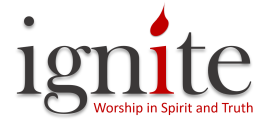If you’ve been to our last couple of services, or you’re on our mailing list, you’ll have already heard the news that there’s a bit of a change to Ignite this year. If this is news to you then read on……
Many of you will already know that we had been prayerfully considering the future of Ignite, and that at one point we pretty much felt that it might be time to bring Ignite to a close. However, having spent further time waiting on God, it seems that perhaps He was just needing us to slow down and listen a bit more! He’s also had a few things to say to us about recognising and focussing on what’s important and getting back to the heart of what we think He’s called us to do with Ignite.
So the upshot of everything is that Ignite will be continuing in 2020, albeit with a fairly important change. We will continue to meet in Charlbury on the third Sunday of every other month as we have been, but we will no longer be meeting in Stonesfield. Instead, God has opened a new door for us at St Mary’s Church in Bampton, where they are just at the start of an exciting journey establishing an evening service in that area. We will be very sad to move on from Stonesfield, but it seems that God is drawing that particular part of Ignite to a close, at least for now. We are truly grateful to everyone who has supported our services there, and in particular to Bernard and Muriel who have quietly beavered away providing hospitality and catering, washing up, moving furniture and 101 other things! Thank you so much.
We realise that Bampton may be a bit too far afield for some of you to get to, but you would all be most welcome to join us at the services down there, which will also be on the third Sunday at the month, but at 5pm instead of 6. If you’re a fan of Downton Abbey then there’s an extra incentive for you to join us as Bampton is one of their filming locations – you might know St Mary’s better as Downton’s church of St Michael and All Angels!
Bampton is more than just a new venue, it’s a subtle change in other ways too. Up till now, wherever we’ve been meeting the Ignite services have essentially been something of a ‘package’ – an indepent-ish event which was hosted by a variety of venues over the years. In Bampton we’ll be helping to resource something envisioned and launched by the local church. Ultimately we’d love to help them find, nurture and grow their own musicians and worship leaders – something we’d always wanted to be part of Ignite but hasn’t really happened up till now, so we’re looking forward to exploring this – perhaps the ultimate ‘success’ will be to do ourselves out of a job!
As always, we’d really appreciate your prayers for all of this. We look forward to worshiping with you in 2020.
